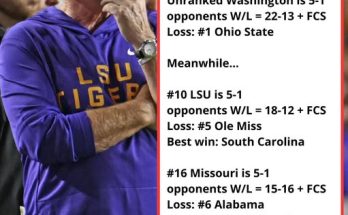Miami Dolphins quarterback Tua Tagovailoa has never shied away from sharing the foundation of what guides him both on and off the field, and that foundation is his faith. In a league where toughness, skill, and mental strength are constantly tested, Tua has shown that his connection to God provides the anchor he needs to navigate success, criticism, injuries, and the high expectations placed on him as the leader of one of the NFL’s most exciting teams. His recent message about leaning on God in every moment, whether good or bad, was more than just words—it was a powerful reminder of how belief can transform challenges into opportunities for growth and resilience. For Tua, faith is not a compartment of his life, it is the core of who he is, shaping not only his football career but also the way he carries himself as a son, husband, teammate, and role model.
When Tua shared that he prays between every drive, it revealed how deeply ingrained faith is in his approach to the game. The NFL is an environment dominated by strategy, analytics, and physical preparation, yet Tua shows that mental and spiritual readiness are just as vital to success. By pausing to connect with God throughout the course of a game, he transforms each drive into something larger than football—it becomes an opportunity to glorify God and place trust in a power greater than himself. For many fans, this resonates beyond sports. It is an illustration of how belief can act as a steadying presence no matter the environment, whether it is a football field filled with tens of thousands of screaming fans or the quiet struggles of everyday life. Tua’s practice of prayer reminds people that faith can live within the smallest moments and provide strength that logic or preparation alone cannot always deliver.
Tua’s career has been filled with moments that tested him, from devastating injuries in college and the NFL to criticism about his ability to stay healthy and lead a franchise consistently. Through it all, he has pointed to God as the source of his strength and perseverance. When he suffered concussions that left the football world concerned for his future, Tua admitted that those were difficult times, not just physically but emotionally. To step back onto the field after such injuries requires a level of courage that goes beyond physical rehabilitation, and for Tua, his faith became the compass pointing him forward. He acknowledged that while doubt and fear are natural, faith allows him to replace fear with trust. This is the essence of his message—whether the outcome is favorable or filled with setbacks, his first response is to lean on God, to turn his circumstances into opportunities to deepen trust and reliance on divine guidance.
It is easy in professional sports for athletes to be consumed by statistics, contracts, and the weight of public perception. In Tua’s case, there is constant debate about whether he should be considered among the league’s elite quarterbacks or if durability questions hold him back from being placed in that category. Despite this noise, his calmness and grounded presence come from knowing that his identity is not tied solely to football. By openly expressing his faith, he places emphasis on something that cannot be shaken by wins, losses, or headlines. This outlook allows him to play with freedom rather than fear, and that often translates into moments of brilliance on the field. When he steps into the huddle, his teammates see someone who leads with confidence, not because of arrogance, but because he knows his purpose extends beyond the scoreboard.
The way Tua integrates his belief into his career also sends a broader message to younger athletes and fans who look up to him. In a culture where sports can sometimes feel like an end-all, Tua demonstrates that faith and values provide balance. Young players often face pressure to prioritize performance above everything else, but seeing a professional quarterback who takes time to pray between drives reinforces that spiritual well-being is as important as physical training. It also shows that faith is not something to be hidden or compartmentalized but something that can empower and sustain athletes in a very public setting. Tua’s openness creates space for conversations about belief and mental strength, topics that are not always prioritized in competitive sports environments.
There is also a personal dimension to Tua’s message that makes it relatable to those outside of football. Every person faces moments of triumph and hardship, whether in careers, family, or health. Tua’s statement about leaning on God in both the good and bad moments speaks directly to the reality that faith is not only for times of struggle but also for times of joy. Gratitude and reliance go hand in hand in his worldview. When he leads a scoring drive or executes a big play, his instinct is to thank God, and when a drive fails or the team faces adversity, he seeks strength in prayer. This approach reflects balance—acknowledging that faith is not conditional on circumstances but is instead a constant source of direction.
Critics might question whether such openness about faith belongs in professional sports, but Tua’s approach demonstrates that belief does not have to be divisive. He does not use his platform to impose his views on others but rather to share his personal truth, inviting those who listen to take inspiration from his journey in whatever way is meaningful to them. By modeling humility, gratitude, and perseverance, he reinforces that values matter as much as performance. Fans of all backgrounds can appreciate his resilience and consistency, even if they do not share the same faith tradition. His presence becomes not only a story of athletic ability but also a narrative about the power of conviction, hope, and inner peace in high-pressure situations.
On the field, the visible evidence of his belief is in how he carries himself. His composure in critical moments, his willingness to lift teammates after a mistake, and his joy when celebrating others’ success show a perspective rooted in something deeper than personal achievement. Off the field, his charitable work, his humility in interviews, and his devotion to family mirror those same values. He presents himself as someone whose priorities are aligned with his faith, creating a sense of authenticity that strengthens his credibility. In an era when many athletes carefully curate their image, Tua’s transparency about his reliance on God comes across as genuine rather than performative, and that sincerity resonates widely with those who follow him.
The Miami Dolphins as a team also benefit from having a leader who draws from such a grounded source of confidence. Football is inherently unpredictable, with games often decided by one or two plays and seasons swinging on moments of injury or fortune. In this chaotic environment, Tua’s faith provides stability not just for himself but also for those around him. His teammates know that their quarterback is someone who can handle pressure without losing perspective. That steadiness can inspire others in the locker room to approach challenges with a similar mindset, emphasizing unity, perseverance, and trust. A team led by a quarterback with such conviction gains more than just strategic leadership—it gains a cultural anchor.
Fans of the Dolphins have seen Tua’s growth as both a player and a man. When he first entered the league, questions swirled about his physical readiness and whether he could live up to the promise he showed at Alabama. Over time, he has silenced many critics with his efficiency, accuracy, and leadership. Yet what makes his story even more compelling is that he has been equally committed to growing in faith as he has been in skill. By leaning on God, he has turned obstacles into lessons, setbacks into testimony, and victories into opportunities for gratitude. His journey is not simply about proving doubters wrong but about proving faithful to the calling he believes is placed on his life.
In the broader narrative of sports, Tua’s message fits into a long tradition of athletes who see their careers as platforms for something bigger. From past legends who knelt in prayer after touchdowns to present-day stars who speak openly about their faith, the integration of belief and performance has been a consistent thread. What makes Tua’s expression unique is the consistency and depth of his practice—praying between every drive is not symbolic but practical. It shows that his faith is not an occasional gesture but a rhythm built into the very structure of his career. Each game becomes not just a contest but a series of moments where he renews his reliance on God, strengthening his mindset and deepening his resilience.
As Tua continues to lead the Dolphins, his message serves as a reminder that faith can be both personal and public, both intimate and inspiring. His words about leaning on God in every moment, good or bad, reflect a truth that resonates beyond sports: that reliance on belief can provide courage, comfort, and perspective no matter what life brings. In sharing his journey, he encourages others to consider the role of faith in their own lives, whether in moments of triumph or trial. For Tua, the story is not about being perfect or unshakable but about consistently returning to the source of his strength. That example makes him more than a quarterback—it makes him a leader defined not just by what he achieves but by who he trusts.



